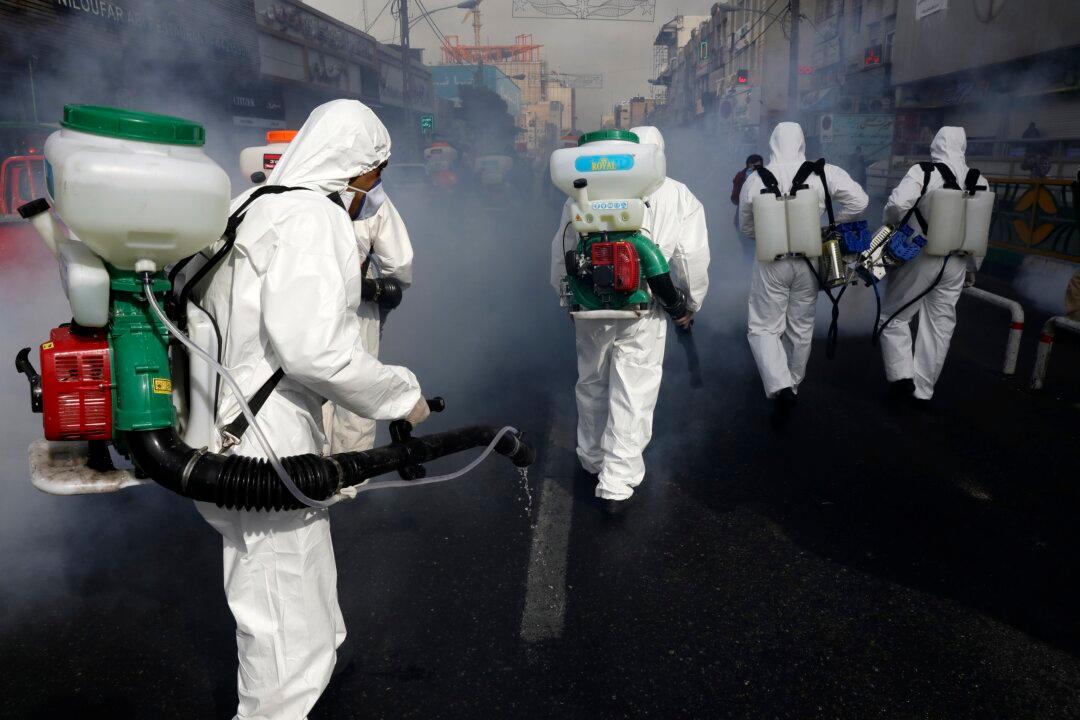A county in southwestern Iran has been placed under lockdown to prevent the spread of the CCP virus, Tasnim news agency reported on Sunday, also quoting the provincial governor as saying there had been a sharp rise in new cases across the province.
Tasnim quoted Gholamreza Shariati, governor of Khuzestan province, which borders Iraq and includes the county of Abadan, as saying people had not been observing social distancing rules.





